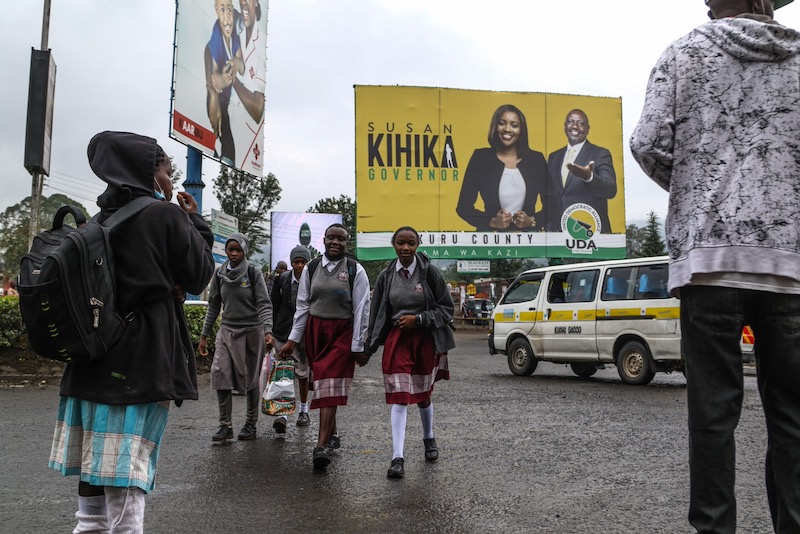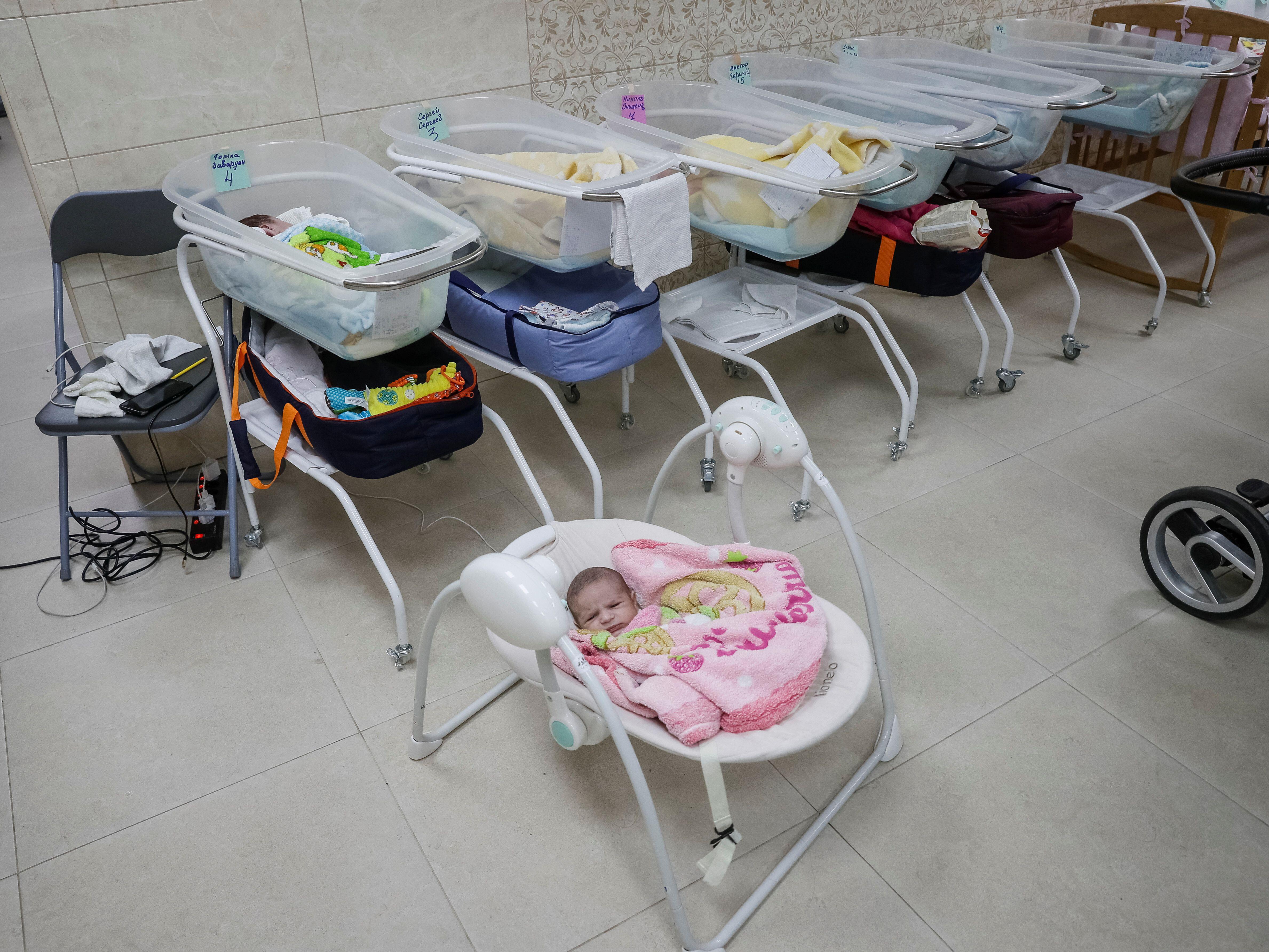The Czech Republic is investigating the sale of at least 30 babies born in Prague to Ukrainian surrogate mothers and sold to clients from abroad for €60,000 to €70,000 each according to the Vienna Institute for Medical Anthropology and Bioethics (IMABE). Together with colleagues from Ukraine, Great Britain and Sweden, members of the Czech National Centre against Organised Crime are investigating the sale of the babies. The investigations are concentrating on the Feskov Human Reproduction Group with branches in Kharkov, Kyiv and Prague which recruits low-income Ukrainian women as surrogate mothers. The babies are born in Prague as surrogate motherhood is free from restrictions in the Czech Republic. In Ukraine it is restricted to married couples or infertile women. Several single men had bought the babies according to the director of the Office for the International Protection of Children in the Czech Republic, Zdenek Kapitan. According to IMABE, six members of the Feskov Reproduction Group are believed to have earned 1.2m euros from child trafficking.
The US Conference of Catholic Bishops is strongly opposing a new set of proposed federal government regulations that seek to enforce a controversial section of the Affordable Care Act regarding discrimination on the basis of sex, sexual orientation and gender identity. All hospitals in the US, including Catholic facilities, would be covered by the new regulations. “Catholics have been called to care for the sick since the earliest days of our faith. Today, the various agencies and social service ministries of the Catholic Church taken together are equivalent to the largest non-profit health care provider in the country,” said the statement signed by four chairmen of relevant USCCB committees. “We do this work in fulfilment of the direct command of Jesus Christ and in imitation of his divine ministry here on Earth.” The new regulations, proposed by the federal Department of Health and Human Services, “mandate health care workers to perform life-altering surgeries to remove perfectly healthy body parts,” the bishops said. “Assurances that HHS will honour religious freedom laws offer little comfort when HHS is actively fighting court rulings that declared HHS violated religious freedom laws the last time they tried to impose such a mandate. This is a violation of religious freedom and bad medicine.”
The Patriarch of Lisbon, Manuel Clemente, is under pressure for having failed to report a case of sexual abuse by a priest. The incident reportedly took place during the tenure of the previous Patriarch, José Policarpo and the accused was removed from his parish and placed as chaplain at a hospital, but continued to have contact with young and vulnerable children through a private, non-canonical institution he founded and helped manage. When Clemente became Patriarch, he met with the victim who informed him about the case but asked him not to pursue the matter canonically or criminally, but to try and ensure the priest would not abuse again. The accusation against the Patriarch is that he indeed failed to report the matter to the authorities, although at the time the diocese did not have guidelines in place requiring him to do so. The Patriarchate has responded, saying that it was only respecting the victim’s right to privacy in a case whose statute of limitations had expired.
On 30 July, the World Day Against Human Trafficking, Columban missionary in the Philippines Fr Shay Cullen, whose Preda Foundation supports child victims of exploitation, called for more centres with professional therapeutic healing and empowerment programmes to be set up, rather than current temporary shelters.
In Brazil, the Auxiliary Bishop of Porto Alegre and member of the Bishops’ Commission for fighting trafficking, Bishop Adilson Pedro Busin, produced a video for the day that underlined that human trafficking is seen in Brazil in the form of slave labour, begging, and trafficking for sexual and organ exploitation. Already, this year 1,000 people have been rescued from slave labour.
France's Constitutional Council has rejected objections by the country’s three main Christian churches to its “separation law”, a tightening of state control over religions to fight against militant Islamists. The Catholic, Protestant and Orthodox churches objected especially to a new rule that all religions must renew their status with a local prefect every five years. Among the documents they must produce are accounts listing where their income is from, an issue usually linked to mosques funded from abroad. The Constitutional Council rejected the Christian churches' complaint, saying it saw no problem for them.
An “alliance” between young Christians from Lebanese parishes and small agricultural producers, Christian and Muslim, is providing new jobs and fresh food amidst the country’s economic crisis. On 23 July, the first weekly community market was inaugurated in the town of Rayfoun, under the auspices of the Centre for Integral Development of the Maronite Patriarchate. Patriarch Bechara Boutros Raï attended, along with local politicians. Food stalls were set up in front of the convent of Saints Sergius and Bacchus.
The German Church’s income from church tax continued to rise in 2021 despite the fact that at the same time 359, 338 Catholics officially left the Church, and so no longer had to pay the country’s compulsory church tax of between 8 and 9 per cent of their net income tax. The statistics published by the bishops’ conference show that 6.73 billion euros was taken in – the second highest sum on record, achieved in large part through property investments. There have been no suggestions from the leaders of the Synodal Pathway that the Church would be better off as a Christian Church without the compulsory tax.
Indonesia’s Ministry of Education has withdrawn a text used in schools after the Catholic Bishops’ Conference pointed out a doctrinal error. The 2021 text was being used for juniors studying Citizenship Education, Religion and “Pancasila”, the charter of the five principles that is the basis of the nation. The offending text stated that, "the two religions, Protestantism and Catholicism, have the same God, the Holy Trinity, Our Lady and Jesus Christ". The Ministry of Education said a new corrected text will be made available, after the Catholic and Protestant Churches are consulted.
Escalating Islamist terrorism in Burkina Faso has left a Catholic diocese devastated, with attacks forcing parish and school closures, and priests unable to minister to 95 per cent of Catholics in rural areas. A report on the Eastern Diocese of Fada N'Gourma, requested by Aid to the Church in Need, highlighted that robberies, kidnappings and murders have all intensified. Terrorists have attacked five of the diocese's 16 parishes, which then had to close, while in seven others ministry is restricted to the vicinity of the church.
Nigerian President Muhammadu Buhari and his government must take the blame for the country’s security crisis, according to Bishop Oliver Dashe Doeme of Maiduguri. He reported last week that attacks on communities by militant groups are spiralling, with thousands killed this year, but "the government has lost its grip on the situation." At least 20 priests have been kidnapped in Nigeria in 2022, five in the first week of July alone, according to Vatican News. Three have been killed.
Myanmar’s army announced on 25 July that it had executed four democracy activists, accused of helping to carry out "terror acts". The judicial executions are the first to take place in the country since 1990. Former MP Phyo Zeya Thaw, a former politician from Aung San Suu Kyi’s National League for Democracy, and activist Kyaw Min Yu, also known as Ko Jimmy, were among the four. Last week, the leaders of Pax Christi International wrote to Cardinal Charles Maung Bo, Archbishop of Yangon, expressing solidarity and continuing prayers for the people of Myanmar.
The bishop of Baoding in China’s Hebei province has published a pastoral letter urging registration of clergy with the government-sanctioned Chinese Catholic Patriotic Association. The letter has caused "unprecedented pressure on the clergy” and “great confusion in the communities," according to local sources. Bishop Francis An Shuxin said that anyone who does not accept the situation could be denied the sacraments.
The Vatican has called for the urgent phasing out of fossil fuels to help combat the climate crisis. Cardinal Michael Czerny, Prefect of the Dicastery for Promoting Integral Human Development, called last week for a “just transition” for impacted workers into “environmentally sound” alternatives. “The proposed Fossil Fuel Non-Proliferation Treaty holds great promise,” he said.
US Bishop Michael Burbidge of Arlington, Virginia announced new regulations implementing Traditionis custodes, limiting the number of venues where the Tridentine rite of the Mass can be celebrated from the current 21 to 8 locations.
Rights defenders in Sri Lanka have deplored a police raid on a remote parish church, allegedly to search for a Catholic priest who has been a key figure in anti-government protests. Police raided the church at Ratnapura in Sabaragamuwa Province, south-central Sri Lanka, on 27 July and searched for Fr Amila Jeewantha Peiris. Cardinal Malcolm Ranjith last week appealed to the international community to open an inquiry into the country’s newly formed government after armed police and soldiers attacked peaceful protesters, less than 24 hours after the new President, Ranil Wickremesinghe, was sworn in.
The acting head of the leading archdiocese of the Syro-Malabar Church in India has reportedly agreed to step down after being presented with an ultimatum to resign by the Vatican. During the tenure of Archbishop Antony Kariyil a long-simmering and bitter liturgical controversy has dominated the Eastern church, with many congregations resistant to a “unified” liturgy that Pope Francis encouraged the Church to adopt. Kariyil continued to give dispensations for the celebration of a rite distinct from this unified rite.



 Loading ...
Loading ...